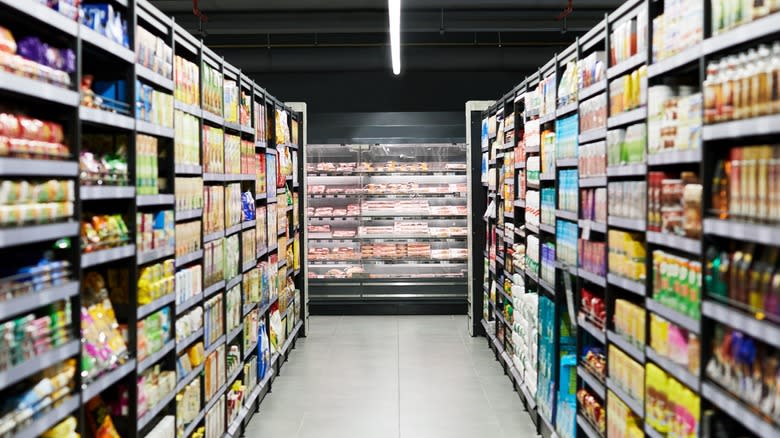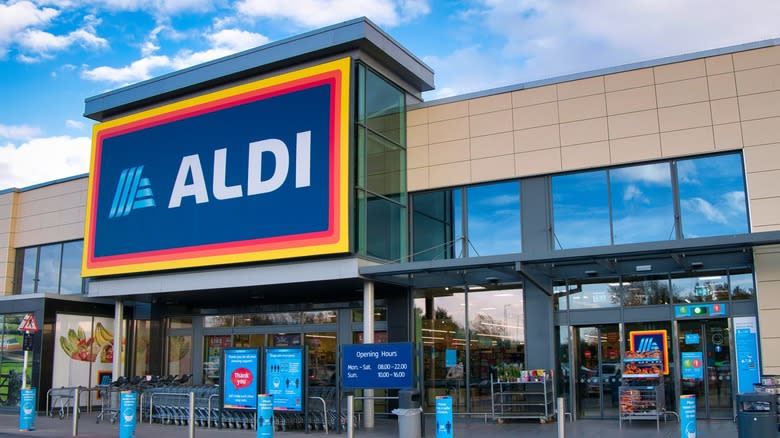What Actually Is A Limited Assortment Grocery Store?

When you walk down an aisle in most grocery stores across the U.S., you'll find a plethora of brands and options for almost every item from sodas to canned vegetables. Most major chain stores have their own in-store brands -- like 365 by Whole Foods Market -- plus national brands, international options, and specialty items. Then, there are stores that offer far fewer brands to choose from, like Aldi, PriceRite, Save-A-Lot, and Trader Joe's. These chains are all examples of limited assortment grocery stores.
It's in the name, but, if you haven't quite figured it out, a limited assortment grocery store is a supermarket chain that carries just one or two brands of different products, rather than dozens. Some stores offer their in-house brand plus one other option, while others, like Trader Joe's, predominantly sell only their own brand of products. What's the perk of having fewer options?
By reducing inventory and only dealing with a limited number of distributors, these stores can pass on the savings by pricing groceries much cheaper than stores offering a broader range of options. This makes limited assortment chains some of the most affordable grocery stores out there. In fact, according to Business Insider, Dollar General, which carries limited brands of its grocery items, sells products for 20% to 40% less than other retailers.
Read more: 23 Whole Foods Baked Goods, Ranked
What Sets Limited Assortment Grocery Stores Apart?

You might have noticed that some of these limited assortment chains have become much more common in recent years. For example, the German-based store Aldi has become the fastest-growing grocer in the U.S., according to a report from Progressive Shopper. And it's not just happening in the U.S.: In Europe, Aldi and Lidl dominate almost 40% of the German grocery market. It makes sense that more shoppers are turning to these chains, considering that, according to the USDA, the cost of food in 2023 was expected to increase by nearly 6% from what it was in 2022 -- a figure well above the historical average annual increase of 2%.
Limited assortment grocers can't totally avoid inflation, but they can sell products at a reduced cost compared to other grocery stores due to their business operations. And there's another other perk of shopping at limited assortment grocery stores. If you're someone who follows a gluten-free or meat-free diet, you can often find more affordable options at chains like Aldi and Trader Joe's. This cuts some of the costs commonly associated with dietary restrictions.
To further reduce costs, some chains have altered a few aspects of the basic grocery store experience. For example, a store might charge a few cents for grocery bags, not offer bags at all (like Costco), or not accept credit cards. They also often lack promotional displays and fancy shelving. Aldi takes it further by requiring its customers to insert a quarter to get a shopping cart, which mostly just prevents them being abandoned in the parking lot and the store having to pay someone to collect them.
Read the original article on Tasting Table.

